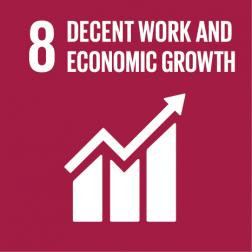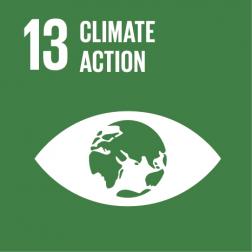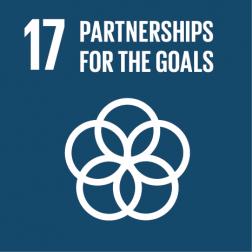In April, Belgium will host the fifth World Cocoa Conference. Its main theme: paying a fair price to cocoa farmers so that they can grow cocoa as sustainably as possible. With Beyond Chocolate, our country is already showing the way.
Belgium rightly cherishes and nurtures its image as the country of chocolate. Belgian chocolate is sought after the world over for its high quality. At 600,000 tons a year, tiny Belgium is the world's second largest exporter of chocolate and accounts for 11% of the world market. The only country that is ahead of Belgium in that regard is Germany (16%).
But it's also true that the Belgians themselves are actually keen consumers of this cocoa confection. On average, every person living in Belgium consumes 5.2 kg of chocolate per year! (See box for more figures).
No wonder therefore that Belgium is actively looking forward to hosting the fifth World Cocoa Conference, the motto of which will be: ‘Paying more for sustainable cocoa’. From 21 to 24 April 2024, around 1,000 participants will make their way to Brussels to debate the future of cocoa.
International Cocoa Organization
The main raw material of our chocolate, of course, consists of cocoa beans and they are grown in the tropics. The Belgian chocolate industry, for example, sources 72% of its cocoa from Côte d'Ivoire (Ivory Coast), Nigeria and Ghana. 82% comes from West Africa and a further 13% from Latin America.
However, the way in which cocoa beans are grown leaves much to be desired. In many cases, they are grown by small cocoa farmers who do not even make a living wage. Sometimes poverty forces them to cut down forest to obtain additional land. Or they put children to work. And if that was not enough, climate disruption is also throwing a spanner in the works.
All this means that there will certainly be plenty of topics to discuss in Brussels. The organiser of the conference – the International Cocoa Organization (ICCO) – is surely well positioned in that regard. It includes 52 Member countries, including 23 exporters of cocoa and 29 importers of cocoa. Together, they account for 86% of all cocoa exports and 72% of all cocoa imports. The ICCO also involves the private sector and civil society in its activities.
In addition, the organisation, which is based in Abidjan (Côte d'Ivoire) has set itself the target of (1) producing and consuming cocoa as sustainably as possible and (2) of combating poverty by distributing added value more equitably across all of the links within the supply chain. The Belgian Michel Arrion has been ICCO's director since 2018.

Beyond Chocolate
By the way, did you know that Belgium also has a well-established profile on the international stage as an advocate for fair-trade and sustainably produced chocolate? The most notable initiative in this regard is Beyond Chocolate, through which we aim to make all Belgian chocolate sustainable by 2030, that is, free of deforestation and child labour, and to ensure that all growers receive a living income. That is yet another reason why Belgium is an extremely suitable venue for the fifth World Cocoa Conference. Beyond Chocolate will therefore be presented there in detail.
In any case, the conference is set to be a high-level event. Queen Mathilde – in her capacity as an advocate for the Sustainable Development Goals (SDGs) – will open the conference and Prime Minister De Croo will give a speech. The European Commissioner for International Partnerships, Jutta Urpilainen, will also be present. In advance of the conference, from 3 to 6 March, our Queen visited Côte d'Ivoire and the cocoa economy formed a key focus of her visit.
Belgium: a country of (sustainable) chocolate
Organising the Cocoa Conference in Brussels will certainly also reflect positively on our country. At the Global Village, the conference's exhibition area, participants will even be able to visit a striking Belgian pavilion. There, they will be able to familiarise themselves with various Belgian players in the cocoa sector. In addition to Choprabisco – the umbrella organisation of the Belgian chocolate, praline, biscuit and confectionery industry – and Brussels-based artisan chocolatiers, these will also include the port of Antwerp, Beyond Chocolate, the Belgian development agency Enabel and others besides.
Belgium will also have an opportunity to further enhance its profile as a champion of sustainable cocoa, by focusing on a living wage and on the role of women. This should help project a positive image of our country in cocoa-producing countries in West Africa, as well as in Indonesia and Latin America.
Finally, as president of the Council of the EU, our country will seek to develop synergies with the European Commission, which is also working to ensure the sustainable production of cocoa and a living wage. The same also is also true of countries such as France, the Netherlands, Germany and Switzerland, which operate programmes similar to Beyond Chocolate.
Our FPS
Our FPS plays a crucial role in the Cocoa Conference. Together with Visit Brussels, we compiled a comprehensive dossier in order to gain approval for the event. Our FPS is also closely involved in the practical arrangements.
Moreover it is responsible for Belgium's efforts to make cocoa farming more sustainable. That is achieved by means of Beyond Chocolate, by providing coaching to cocoa cooperatives via the Trade for Development Center, by providing support via the Business Partnership Facility and in the form of investments by BIO.
Belgium, a country of chocolate, in figures
- Each person living in Belgium consumes an average of 5.2 kg of chocolate per year. In 2020, each family spent an average of 173 euros on chocolate.
- At 600,000 tons a year, Belgium is the world's second largest exporter of chocolate and therefore accounts for 11% of the world market.
- The Belgian chocolate, pralines, biscuit and confectionery sector is made up of 337 companies employing 13,327 people. Their total turnover comes to 6.2 billion euros.
- The largest chocolate factory in the world – owned by Barry Callebaut – is in Wieze (East Flanders) and the largest distribution centre – also owned by Barry Callebaut – is in Lokeren. Barry Callebaut is the world's largest producer of chocolate and cocoa.
- There are about 755 chocolate factories in Belgium and about 2,000 chocolate boutiques.
- The port of Antwerp is the second largest cocoa port in Europe with the biggest storage site for cocoa beans in the world. Most of the cocoa that arrives there is re-exported to other European countries.




